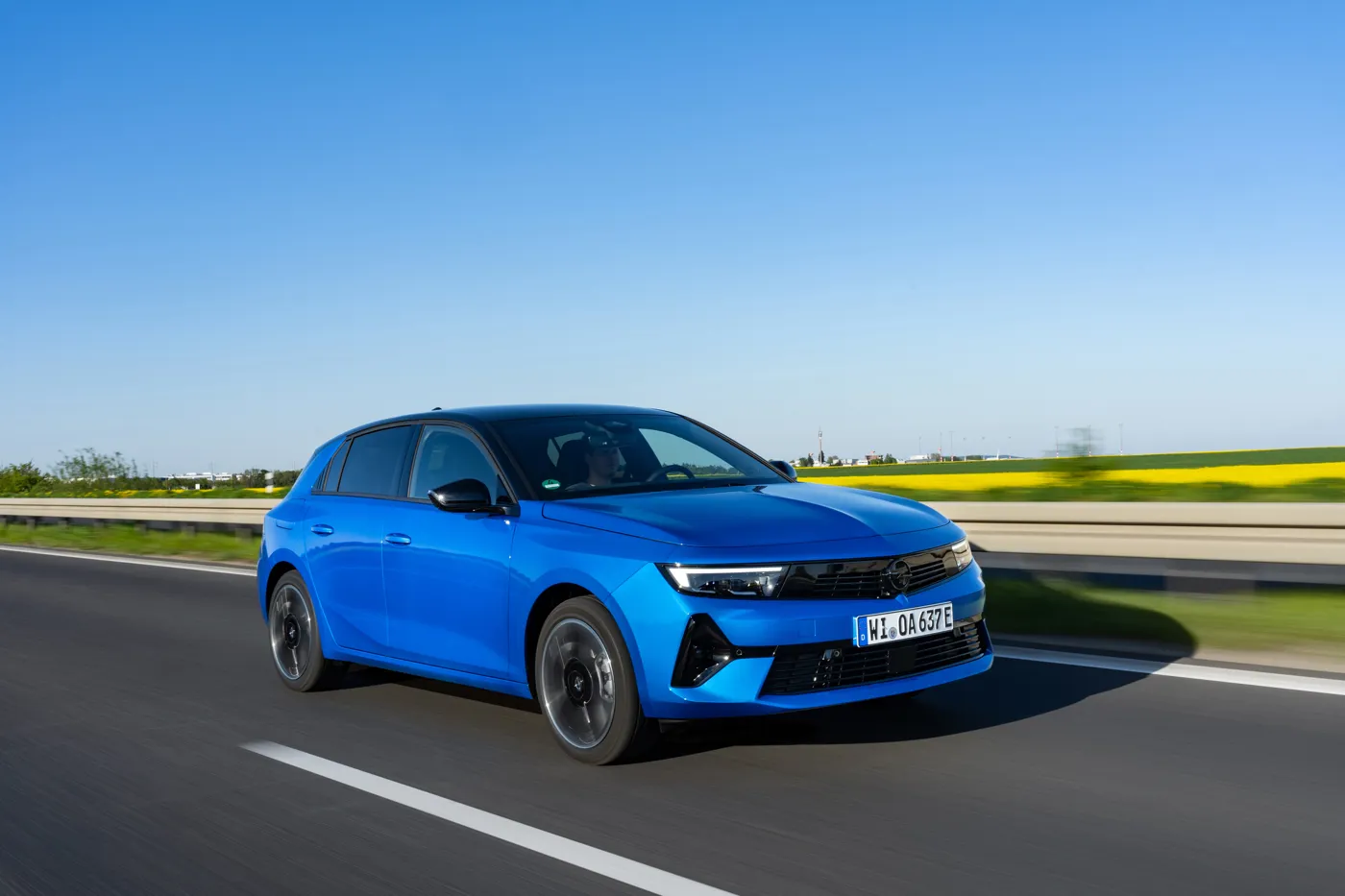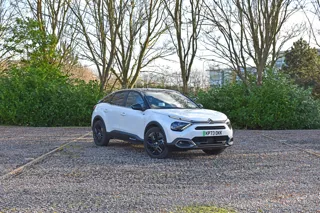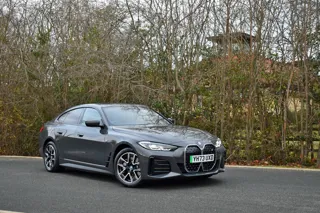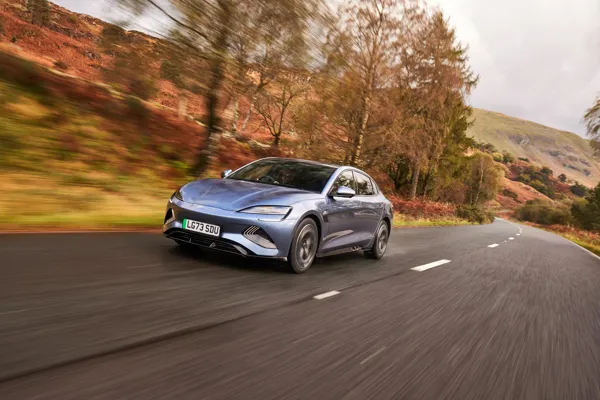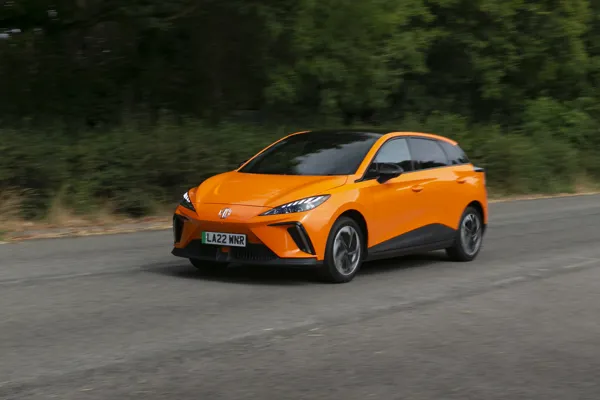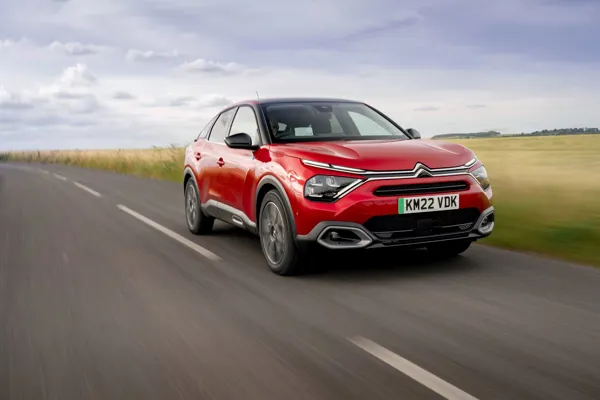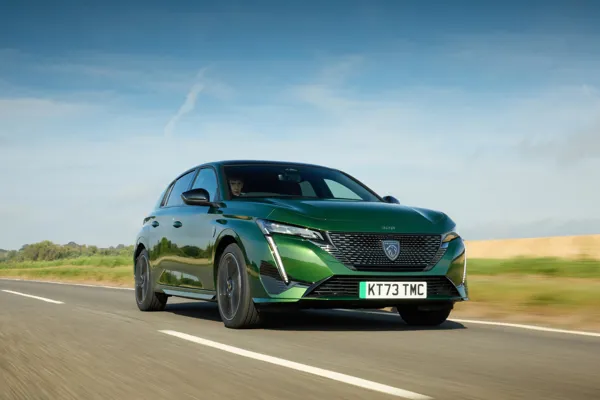Review
Vauxhall has almost achieved its goal of having an electric version of every car in its line-up and the launch of the new Astra Electric plays a key part in that transformation.
In the last decade, fleet sales of the Astra have slumped. Its title as the UK’s most popular company car has long been lost as drivers favour premium-badge electric models from the likes of Polestar and Tesla.
Perhaps that’s why Vauxhall has opted to push the Astra upmarket, with a plusher interior and higher price.
We first experienced the car, with internal combustion engines, more than a year ago and found the eighth-generation model to be significant step-up on its predecessor, offering a much-needed dose of desirability.
Read our review of the ICE and PHEV Astra here.
With an electric powertrain under its skin, the Astra should have greater appeal in the fleet market.
Its appearance is exactly as it was before. There’s really no visual difference to distinguish an electric Astra from any other variant. This should win it favours among drivers who don’t want to shout about the fact they’ve got an EV.
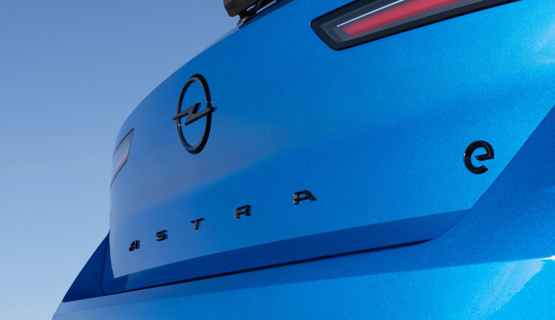
The charging port is hidden behind the fuel filler flap, so the subtle ‘e’ badge on the rear, along with an absence of exhaust smoke on cold days, are the only giveaways.
Much the same can be said of the interior. Vauxhall developed the Astra with the electric version in mind, so passenger space is indifferent, and you get the same super-comfy AGR-certified seats. Even the boot offers the same 352 litres of space an Astra plug-in hybrid.
The Vauxhall Pure Panel infotainment system combines a pair of 10-inch screens to create a wraparound digital cockpit. The touchscreen infotainment display is concise and easy to operate, with a handy row of buttons to control key functions like the temperature.
Powering the Astra Electric is new powertrain from Vauxhall’s parent company Stellantis. It uses a 54kWh battery and a 156PS electric motor that sends drive to the front wheels.
Vauxhall claims a range of 258 miles (WLTP) can be achieved. Our test car was showing 265 on a warm day. We covered a mixed route, taking in slower moving city streets and faster A-roads, and achieved 4.2mi/kWh. This would suggest a real-world range of around 214 miles is possible, although the car’s computer was promising more.
At a constant 70MPH, on the motorway, the Astra was returning closer to 3.0mi/kWh – equating to range of less than 160 miles of high-speed driving from the car’s usable battery capacity.
An 11kW on-board charger achieves a full charge from empty in 5hr 45mins, although it will take seven hours using a regular home wallbox. A public DC rapid charger (100kW) can deliver a 10% to 80% charge in 30 minutes.
Performance is best described as ‘adequate’. Vauxhall aren’t looking to break any records here. Acceleration from 0-62MPH takes 9.2 seconds and top speed is capped at 109MPH. So it’s plenty fast enough for everyday driving, but doesn’t deliver the punchy response that some EVs provide.
The progressive throttle means the Astra feels weighty and refined. From behind the wheel you’d be forgiven for thinking you were driving a compact executive saloon. The ride is firm, but not harsh. It’s definitely not a floaty car, favouring stability over comfort.
In the corners the Astra has fairly quick steering but doesn’t really excite. If you push too hard the tyres will start to squeal long before the car gets out of control.
It makes for a relaxing driving experience, giving those behind the wheel little encouragement to really press on. It handles higher motorway speeds respectably; you just need to keep an eye on the battery level.
Switching to the Sport drive mode delivers full power and a keener throttle response, whereas the Eco setting stifles the pedal and makes the car feel decidedly sluggish. We found the Normal mode to provide the best balance of driveability and range.
The Astra Electric, then, doesn’t set a new benchmark in the C-segment but rather offers a credible alterative to the current crop of electric hatches with attractive styling and a high specification. There will also be an estate version, coming soon, offering greater practicality.
Vauxhall's USP used to be value, but this is no longer the case. The Astra Electric's starting price of £39,995 may impact overall demand, as vehicles like the Cupra Born, Renault Megane E-Tech and VW ID 3 can all be had for less while providing similar capability.
Then there’s the biggest challenge for Vauxhall: the MG4. For a fleet operator, the MG comes in at £10,000 less, offers a longer range and is much faster.
We like the Astra Electric a lot, but Vauxhall will need to make the leasing rates particularly compelling if it wants to drive significant volumes into the fleet market.
Specs
| Manufacturer | Vauxhall |
| Model | Astra Electric Hatchback |
| Specification | Vauxhall Astra Electric Hatchback 115kW GS 54kWh 5dr Auto |
| Model Year | 2023.00 |
| Annual VED (Road tax) | £0 |
| BIK List Price | £40,090 |
| CO2 | N/A |
| BIK Percentage | 2% |
| Insurance Group | N/A |
| CC | 1 |
| Fuel Type | Electric |
| Vehicle Type | Medium car |
| Luggage capacity (Seats up) | 352litres |
Running Costs
| P11D | £40,090 |
| Cost per mile | 51.84ppm |
| Residual value | £14,950 |
| Insurance group | N/A |
| Fuel Type | Electric |
| Cost per mile | 171.48ppm |
| Fuel | 6.90ppm |
| Depreciation | 163.70ppm |
| Service maintenance and repair | 0.88ppm |
Rivals
Info at a glance
-
P11D Price
£40,090
-
MPG
N/A (WLTP) -
CO2 Emissions
N/A -
BIK %
2% -
Running cost
3 Year 60k : 51.84 4 Year 80k : £12,175 -
Fuel Type
Electric



